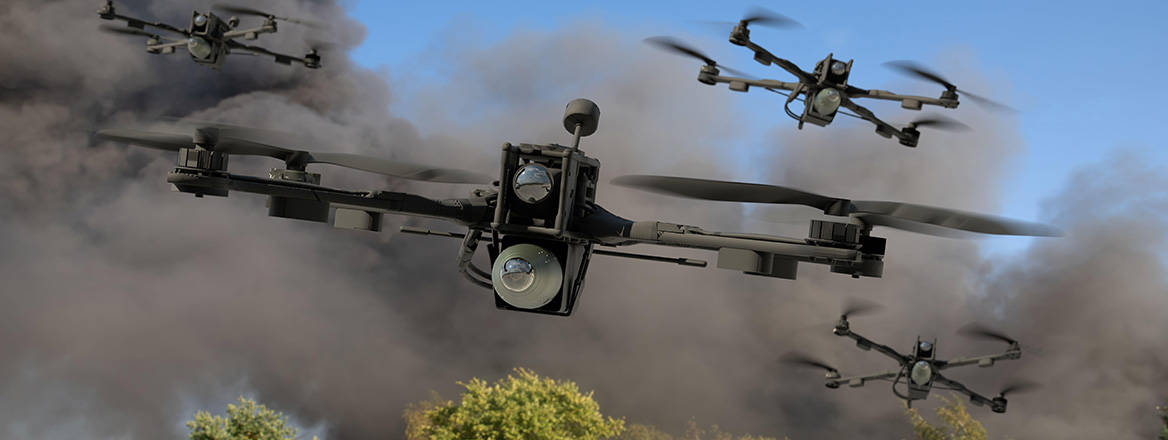Assessing Autonomous Weapons as a Proliferation Risk
The proliferation of lethal autonomous weapon systems is inevitable, given the availability of the underpinning technology and the benefits that such systems bring to some users.
Lethal autonomous weapon systems (LAWS) will cause problems for armed forces, but the absence of an agreed definition complicates attempts to regulate and control their proliferation.
LAWS are not a single capability. Hence, this paper considers the risks associated with LAWS based on the likelihood and impact of their proliferation in relation to three broad categories: minimum viable product (MVP); military off the shelf (MOTS); and boutique. The sophistication of these systems differs significantly, as do the risks each pose and the demands they place on users, all of which has an impact on the proliferation risk.
MVP LAWS involve homemade and commercially specified and available technologies. The software, hardware and expertise necessary to develop a minimally functioning LAWS are widely available and within the reach of non-state actors if they see benefit in its adoption. These weapons represent the biggest risk of proliferation, especially in relation to non-state actors, but they are often fragile and, considered individually, are not game-changing (in terms of impact) for modern militaries. However, even relatively simple systems used at scale can still cause problems for Western militaries, who often lack mass.
MOTS have high degrees of autonomy and are proliferating rapidly to anyone with sufficient funds, including non-state actors. However, while many are offensive capabilities, they also include defensive systems, such as air defence weapons that are often autonomous but not offensive. The risk posed by MOTS LAWS is arguably limited by affordability, but there may be clear advantages to adoption, including enabling battlefield mass. MOTS proliferation is highly likely, and military advances in autonomy are more a matter of will and ethics than of technological hurdles. So, while the likelihood of proliferation is high (if slightly lower than for MVPs), the impact is higher, especially if the systems can be used at scale.
Boutique LAWS are exquisite capabilities being developed by a select few countries. They are very expensive complex systems designed for specific effects against well-identified threats, such as a specific element of an opponent’s strategic defensive network or deterrence capabilities, and as such are the most destabilising (high impact). Their adoption advantage is high, but the cost of developing and maintaining them means proliferation is currently unlikely beyond the wealthiest states.
Adoption advantage is needed for LAWS to proliferate and, in many areas, such as the MVP and MOTS paradigms, advanced conventional capabilities still have an edge over LAWs, although this may change. As the technology underpinning LAWS matures and becomes proven, proliferation risks will increase. Militaries have the opportunity, and arguably the responsibility, to lead the conversation about proliferation and shape its outcomes.
WRITTEN BY
Paul O’Neill CBE
RUSI Senior Associate Fellow, Military Sciences
Sam Cranny-Evans
RUSI Associate Fellow, Military Sciences
Dr Sarah Ashbridge
Affiliate Expert, Military Sciences
- Jim McLeanMedia Relations Manager+44 (0)7917 373 069JimMc@rusi.org




